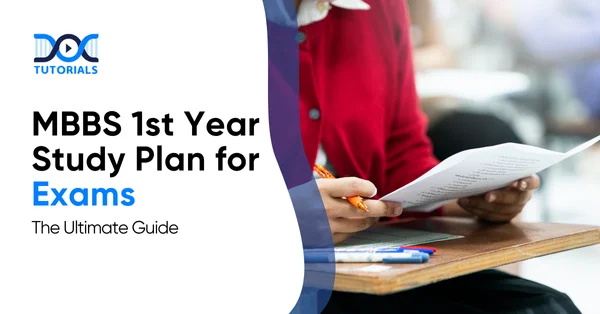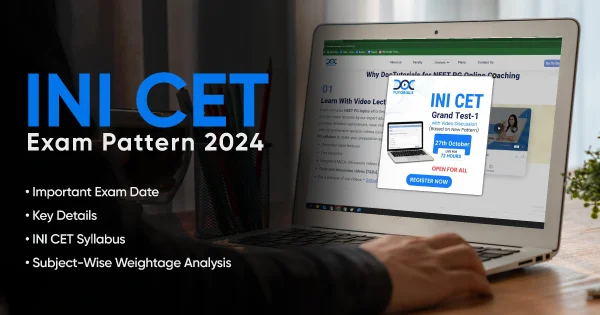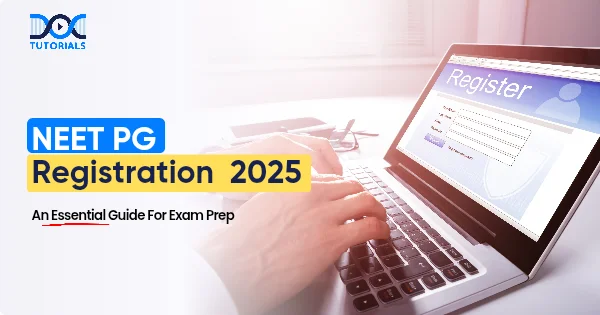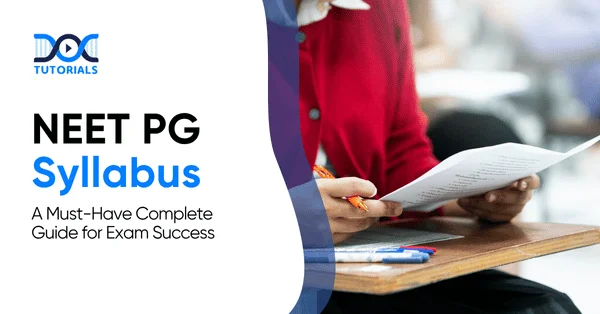MBBS 1st Year Study Plan for Exams: The Ultimate Guide

Studying in a government medical college and becoming a doctor is a dream for many students in India. The 1st year in MBBS aims to build a strong foundation for future doctors, enabling them to carry out clinical practice smoothly and make accurate diagnoses followed by appropriate treatment.
There are mainly three subjects in the 1st year of MBBS which constitute the pre-clinical subjects: Anatomy, Physiology, and Biochemistry. As the syllabus is vast, having a clear understanding of the exam will help students prepare effectively by developing a proper study plan.
Adopting appropriate strategies and availing proper resources make up a significant part of the journey to becoming a successful doctor. Keep reading to learn about the MBBS exam pattern, the passing and eligibility criteria, the subjects, and some tips to score better academically.
Understanding the 1st Year MBBS Exam Pattern
As the students are new to the NMC curriculum, they need to understand the MBBS exam pattern to develop an effective study plan. In Indian medical colleges, three exams are conducted at the end of every professional year: theory, practical, and viva voce.
The latest guidelines by NMC regarding the exam pattern are:
- Theory Exam: The three subjects are divided into two theory papers: Paper 1 and Paper 2. Each paper is of 100 marks, which comprises short-answer, long-answer, and MCQ questions.
- Practical Exam: Each student must take a practical exam worth 100 marks, which will assess their practical skills. The clinical skills might also be evaluated through OSCE (Objective Structured Clinical Examination), where the students are made to work through different stations to demonstrate the required skill.
- Viva Voce: The examiner assesses the student’s knowledge of clinical scenarios, work ethics, diagnosis, and attitude towards patients. They can also ask the student to interpret the test results that are provided to them.
MBBS 1st Year Exam Marks Distribution and Passing Criteria
In the MBBS 1st year, the theory and practical marks in each subject are evaluated together to provide the student with an overall mark in each subject. The internal assessment is done by conducting quizzes, class tests, assignments, and practical sessions, which are calculated separately.
The marks obtained in the internal evaluation make an essential segment of the progress report.
Eligibility Criteria for MBBS 1st Year Exam
As per the NMC guidelines, the student’s score should be according to the following cutoffs mentioned in the table below:
| Exam | Minimum Marks |
| Internal Assessment | Theory: 40% Practical: 40% Both should constitute a minimum of 50% to qualify for the university exams. |
| University Exams | Theory: 40% Practical: 40% A minimum of 50% aggregate in each subject. |
| Two Theory Papers | Combined score of 40% across both papers. |
Subject-Wise Study Tips in MBBS 1st Year
The MBBS 1st year has three base subjects in which the students should have a clear understanding:
- Anatomy
- Divide your time equally between Histology, Neuroanatomy, Gross Anatomy, and Embryology so that none of the subjects are left behind.
- Make use of diagrams and mnemonics for better understanding and retention.
- After attending the practicals, make sure to revise them the same day.
- Physiology
- Try to understand the concepts instead of memorising them line by line.
- Emphasise the core concepts such as the mechanism of nerve conduction, muscle contraction, and physiology of respiratory and cardiovascular systems.
- Clear your concepts by solving the related MCQs.
- Biochemistry
- Put focus on molecular biology and metabolism.
- Try to solve the MCQs of the related concepts to have a clear understanding.
Suggested Study Plan for MBBS 1st Year Exam
Although the same study plan does not work for everyone, here is a suggested study plan that will help the MBBS 1st year students to prepare for their exams:
- Morning: Start your study session at 6 am and continue till 9 am with anatomy theories and diagrams.
- Daytime: After the morning study session, attend your classes and then begin your next study session. During this session, you can revise the physiology notes.
- Evening: After the daytime study sessions, take a break and start from 7 pm to 9 pm. You can sit with your biochemistry lessons at this time.
- Before Bed: Make this a short session of 30 minutes before bed, where you just go through the related MCQs and a quick revision of the essential pointers that you studied throughout the day.
Tips to Excel in MBBS 1st Year Exam
Practical tips and tricks should be implemented during study sessions to have better retention and understanding. Go through the following section to learn about the tips to ace your MBBs 1st year exams:
- Create a Customised Study Schedule
Create a study plan for yourself, dividing the time available into various slots for various subjects. Take breaks in between to prevent burnout. Create weekly schedules to avoid lagging.
- Active Recall
Don’t always refer to your notes while revising. Sometimes, start recalling the main points without looking at the text and repeat them at intervals to stimulate your memory.
- Practice Diagrams and Answers
Take time-bound tests on your own and start practising the answers and diagrams. This will help you to identify the shortcomings and overcome them before you appear for the exams.
- Use Mnemonics and AV Aids
Using mnemonics to learn the anatomical structures for better learning and retention. Memorise flowcharts and mind maps to correlate the topics and simplify the given information.
- Take Part in Group Discussions
Learning together with classmates and friends helps to strengthen the ideas and understanding. Also, if someone gets stuck on a topic, other friends can help clear the concept and move forward with the subject.
- Revise Regularly
With such a vast syllabus to cover, the students might forget the previous topics. Hence, regular revisions will help them to recapitulate the points and retain them better.
- Take Proper Rest
MBBS is a demanding course which requires students to stay balanced and nourished. Hence, the students should take their meals properly along with a proper sleep schedule to work with maximum effectiveness.
- Practise Clinicals Adequately
Missing clinicals means compromising with your future, as MBBS deals more with practical skills rather than theoretical knowledge. When given an opportunity, take part in dissection classes in Anatomy and conduct lab experiments in Physiology and Biochemistry.
FAQs About MBBS 1st Year Study Plan for Exams
- How to study for the first year MBBS exam?
There are mainly three subjects in the MBBS 1st year where understanding concepts and correlating them with the clinicals is very important. Students can have better retention of information by practising diagrams and memorising flowcharts.
- Is the MBBS 1st year very hard?
Some students might find it very difficult due to the vast syllabus and the challenge of getting accustomed to an entirely new environment.
- How many books do we have in the MBBS first year?
Although the number of books may vary depending on the reference books the student has, the standard set contains 14 books.
- What is the cost of the 1st year MBBS books?
The price of books depends on their condition, whether they are new, old, or discounted. However, they range between ₹7,000 and ₹13,000.
Conclusion
MBBS 1st year exams can be challenging for new students, as they need to understand the latest exam pattern, the vast syllabus, its structure, and more. However, systematic study plans and strategies, along with proper utilisation of time and access to appropriate books, help the students to manage the MBBS 1st year exams.
One of the key strategies to perform well in the MBBS 1st year is to stay motivated and focused, as this will help avoid last-minute cramming. Building a strong base in the first year will ensure a concrete future while practising as a physician.
Start your MBBS preparation today with DocTutorials and boost your confidence!
Latest Blogs
-

INI CET Exam Pattern 2025: A Complete Guide with Subject-Wise Weightage
The Institute of National Importance Combined Entrance Test (INI CET) is your key to entering some of the most prestigious…
-

NEET PG Registration 2025: An Essential Guide For Exam Prep
The NEET PG registration, which is conducted online, is a crucial step in the exam process. Filling out the NEET…
-

NEET PG Syllabus 2026: A Must-Have Complete Guide for Exam Success
The NEET PG Syllabus acts as one of the foundation stones for aspiring postgraduate medical students like you who are…




